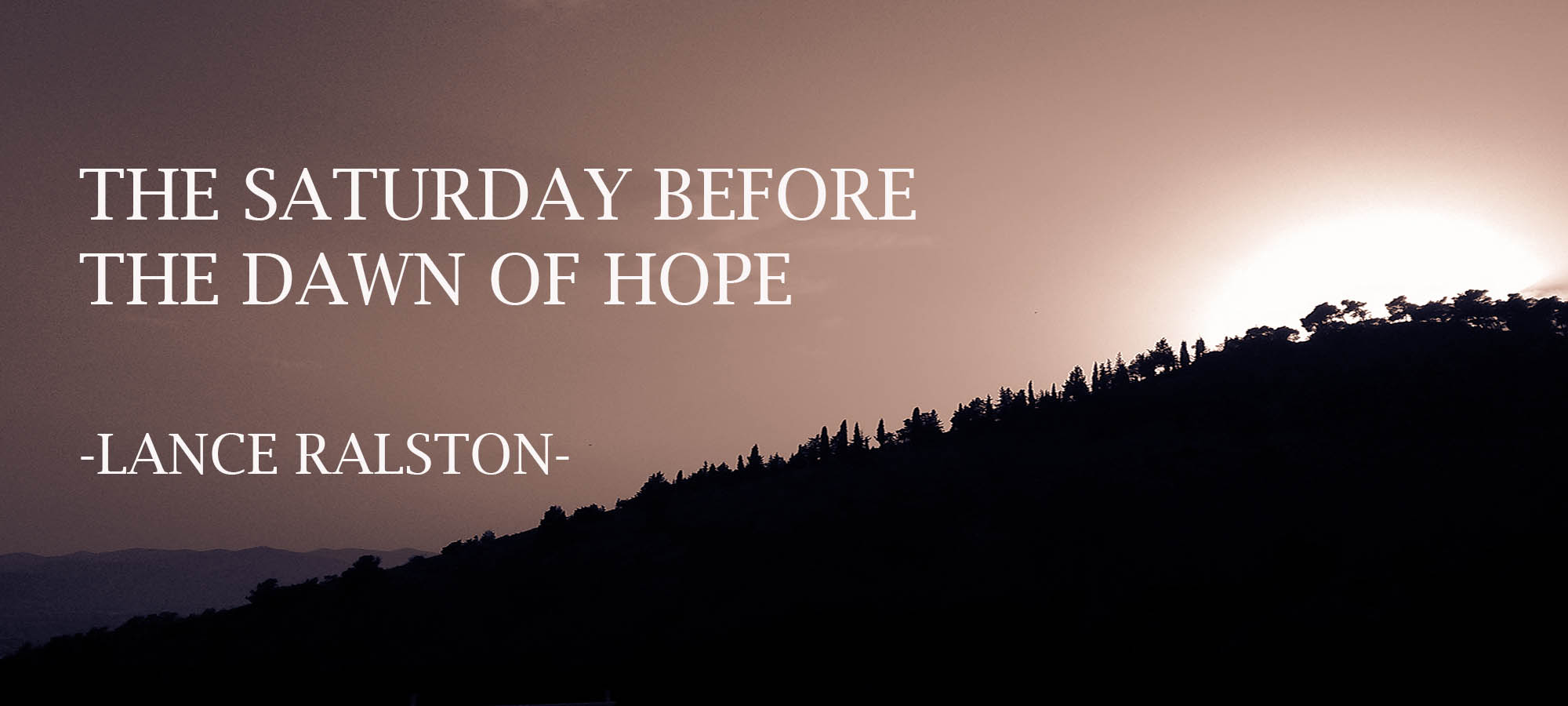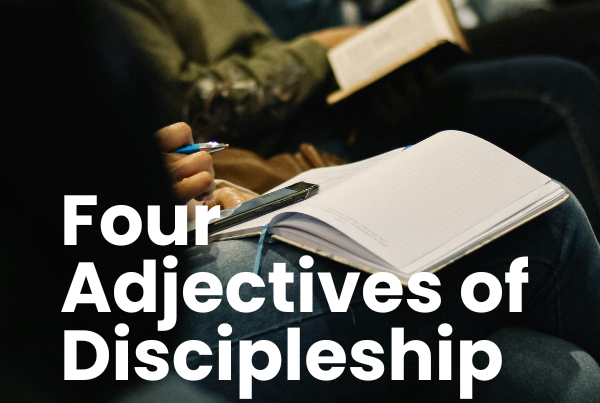
At the Last Supper, Jesus repeated something He’d been saying to the disciples often over the previous several days. He told them He was about to leave. He warned them He would be betrayed into the hands of enemies, executed, then rise from the dead three days later. He kept repeating it because they weren’t getting it. They heard the words. It’s just that they didn’t accept them. Dying didn’t fit their scenario for who they believed Jesus to be; the Messiah. Their idea of Him was a mighty king who conquered His enemies. He wasn’t done in by them. They envisioned a throne for Jesus, not a cross. So all Jesus’ talk about dying they chalked up as another of His parables. It wasn’t. Jesus spoke plainly and made it even clearer at the end of the Last Supper when He said, “A little while, and you will not see Me; and again a little while, and you will see Me, because I go to the Father” (John 16:16).
What He said here is to be understood literally; exactly as He said it. In a short while, He’d be gone. Then a short time after that, He’d be back. He’d originally come from God the Father and was returning there. His mission was almost complete.
But the disciples once again assumed He meant something other than what He said. Not because it was difficult to understand. It wasn’t. It was just difficult to accept. So we read, “Then some of His disciples said among themselves, “What is this that He says to us, ‘A little while, and you will not see Me; and again a little while, and you will see Me’; and, ‘because I go to the Father’?” They said therefore, “What is this that He says, ‘A little while’? We do not know what He is saying” (John 16:17-18).
If I say, “In two minutes, I’m going to fly up into the air, make a 100 yard wide circle, then return to this spot,” You’d either scoff and say, “No you’re not;” look for some loophole in my words that meant something other than actually flying, or you’d look for a jetpack or harness. All because you KNOW I can’t fly on my own power. It’s simply not possible.
The disciples regarded Jesus’ death as impossible.
They knew He was the Messiah. He’d proven it repeatedly. He claimed it. But death wasn’t in the Messiah’s job description; at least, not in the one they liked. So they groused about Jesus’ warning.
Now Jesus knew that they desired to ask Him, and He said to them, “Are you inquiring among yourselves about what I said, ‘A little while, and you will not see Me; and again a little while, and you will see Me’? Most assuredly, I say to you that you will weep and lament, but the world will rejoice; and you will be sorrowful, but your sorrow will be turned into joy” (John 16:19-20).
Jesus gave an illustration of what the disciples were about to experience when He said, “A woman, when she is in labor, has sorrow because her hour has come; but as soon as she has given birth to the child, she no longer remembers the anguish, for joy that a human being has been born into the world” (John 16:21).
I’ve been at my wife’s side for the birth of all three of our children. All I can say is; you mothers are amazing! You’re the undisputed champs at enduring pain. Men come close to passing out just watching you give birth. I’ve heard of women in labor squeezing their husband’s hand and consigning him to the fires of eternal hell for making them have to go through that. Then the child is born, and the mother almost instantaneously transforms to a tender, affectionate, nurturing ball of love. She goes from the “Terminator” to nurse in the space of a couple minutes.
Jesus said that kind of wild swing of emotion is what the disciples were soon in for.
“Therefore you now have sorrow; but I will see you again and your heart will rejoice, and your joy no one will take from you” (John 16:22). Because in a short time, Jesus would be arrested, given a sham trial, condemned, brutally tortured, then hauled out to a place of public execution where He’d be nailed to a Roman cross and die. But death wasn’t the end of His story. Our commemoration of Easter happens because death wasn’t the end. Jesus was crucified on Friday afternoon, but rose from the dead Sunday morning. He appeared to them in the room where they had gone into hiding. Their sorrow was turned to joy. They went from weeping to dancing.
But let’s pause to ponder the day we tend to ignore in the story: Saturday.
What were the disciples thinking and feeling? For them, Friday afternoon saw the utterly unthinkable happen. The very thing Jesus warned them of, but they’d refused to entertain, came about exactly as foretold. Just as He said, Judas betrayed Him. As He warned, they all ran away when He was arrested. As foretold in stunning detail, Peter denied Him three times before the rooster announced dawn. He was turned over to hateful men who abused Him, then He was lifted up and crucified.
All that came to pass exactly as He said. But that wasn’t all He said. He’d gone on to say He’d rise from the dead on the third day. Since the first part came so literally true, maybe the second part would too. But how dare they hope for it?
Their hope was shattered by Friday, crushed under the heel of the Roman boot.
Hope can be a fragile thing, and on this Saturday, their it lied broken, wrapped now in linen grave clothes, lying in a borrowed tomb. That hope had risen high when Jesus healed the blind and lepers. It soared when He raised the dead to life. It was stoked by the demon possessed He freed. It was nurtured by His feeding of thousands with a few loaves and fish. It was made sure by His walking on the water.
But the disappointment of Friday had turned hope into a heavy stone that weighed them down. They dared not hope, lest another disappointment send them into complete despair.
For many people today, it’s Saturday. I don’t mean the day of the week; I mean the season of life. They had lost hope and life had been reduced to survival, with whatever small pleasure they could squeeze out along the way. They used to hope, used to dream. The sky was blue, and the stars were bright. The future was an open book with hundreds of blank pages just waiting to be colored in. But then Friday came and hope died. The sky turned gray, and the stars fell. The future became a thing to dread. The dream turned into a nightmare. Friday was a death, divorce, illness, betrayal, bankruptcy. Whatever made it Friday robed them of hope. And now they dared not hope again lest another disappointment put them over the edge.
If you’re living in a “Saturday,” please hear this: Saturday ends with Sunday’s Dawn.
Jesus rose; just as He said He would. He appeared to the disciples. And in an instant, their sorrow was turned to great joy. But Matthew added a comment at the very end of his Gospel that’s enlightening. He said even among the disciples, some struggled with doubt. (Matthew 28:17). How thankful we can be for the Bible’s honesty. Matthew didn’t sugar coat it and say they were all a bunch of happy campers after the resurrection. Some still struggled. They didn’t doubt Jesus had really risen. That wasn’t their problem. They knew without a doubt He had. What they wrestled with was letting go of their disappointment. They wanted to hope, but needed to know it was safe. It took them a little while to understand why Jesus had to die on Friday; why the cross was necessary. Then, their disappointment dissolved into love and devotion to Jesus that saw them eventually die in the cause of sharing the Gospel with others.
If you’ve been living in Saturday, let this Easter Sunday be the beginning of a new life and new hope. Friday’s cross means all our sins have been paid for. Sunday means a new life awaits those who put their hope and trust in Jesus.






